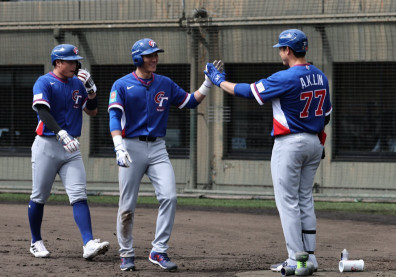電影《華爾街之狼》勾勒出荒淫、墮落、紙醉金迷的金錢世界,追逐財富的代價,是人性變得更自私自利。美國柏克萊大學的社會心理學家保羅‧皮福,用有趣的實驗,讓我們檢視赤裸裸的人性,你會恍然大悟:為什麼有錢人講話那麼大聲。
進入本文之前,請先想想以下的單字:
It’s 8:30 in the morning. You know you are going to be late for work again. You are standing in a long queue to get your coffee and breakfast, complaining to the waiter for not delivering your order promptly. After an exhausting day at work, you feel like going home immediately. You start messaging your friend after spotting a seat on the MRT without seeing a ve-year-old girl standing just in front of you.
早上8 點半,你知道你今天上班又要遲到了。你排在很長的隊伍裡等著買咖啡和早餐,一邊抱怨服務生動作不夠快速。上了一整天班,你精疲力盡,ㄧ心只想著趕快回家。一上捷運,看見有位子就立刻坐下,開始拿出你的手機傳訊息給朋友,沒有注意到一位5 歲的小女孩就站在你面前。
The scenario is familiar to all of us; or we can say it happens to us or around us almost every single day. We tend to prioritize our needs above the interests of other people. When having a bad (A)conscience, we would come up with a whole bunch of excuses to justify our behaviors. It makes us wonder if the hustle and bustle of life in the big city has turned us into ruthless people.
How does money affect the way we behave? A famous social psychologist, Paul Piff,uses a rigged monopoly game to answer the question.
這樣的場景我們一點都不陌生,幾乎每一天都可以看見我們自己或是別人做出類似的行為。我們往往優先考慮自己的需求大過於他人的利益。當良心不安時,我們總是可以想到一大堆理由來合理化自己的行為。這讓我們不禁疑惑,生活在喧擾繁忙的大城市裡,我們是不是早已變得冷酷無情?到底金錢對於我們的行為有什麼影響?著名的社會心理學家保羅‧皮福用一場精心設計的大富翁遊戲來回答這個問題。
Paul and his research group conducted a study at the University of California, Berkeley, to look into how people behave when feeling wealthy. They brought more than 100 pairs of strangers into the lab to play the monopoly game. One of the players in each pair was assigned as the“ privileged” one and the other one as the“ poor” one. The privileged players collected twice the salary on passing“ Go” and rolled two dice rather than one.
為了研究當人類感受到富有時的行為,保羅和他的研究團隊在加州柏克萊大學進行一個實驗。他們將100 對彼此不認識的陌生人帶到實驗室裡玩大富翁。每對玩家裡面有一位分配到優勢權,而另一位是相對弱勢。具有優勢的玩家在通過起點的時候都能領取兩倍的錢,並且每回可以擲兩顆骰子,而另一位玩家只能擲一顆骰子。
Significant differences between the privileged and the poor players were revealed as the game unfolded. The rich ones became louder, followed by display of power and dominance through nonverbal language. The privileged players even behaved in ruder ways towards the poor ones as a means of showing off their material success. The experiment demonstrates that as one’s wealth goes up, one’s feelings of compassion and empathy decrease while self-focus and feelings of (B) entitlement increase. On top of that, some research showcases that financial inequality undermines positive things in the society, such as economic growth, social trust, and educational performance.
兩位玩家在遊戲開始之後便展現出極大的差異。有錢的那位玩家,聲音變得愈來愈大聲,並用肢體動作展現出自己的權力和優越感。他們甚至開始對貧窮的玩家無禮,並以物質上的優越作為炫耀。此實驗顯示,隨著一個人的財富增加,對他人的同情心和同理心均會下降,並且自我中心和權力的意識會增強。除此之外,有研究顯示,財富不均會危害社會的積極面向, 如經濟成長、社會信任和教育成效。
The Global Wealth Report in 2013 shows that the top 10% of the world population own close to 83% of the total wealth while half of the population possesses barely 1% of global wealth. It also suggests that economic growth has (C) exacerbated this income inequality. As governments around the world try to grow their economies,we should perhaps ask ourselves how much economic growth we are willing to compromise, if any, for the wellbeing of our fellow citizens!
2013 年全球財富報告指出,世界人口中,10%富豪擁有近83%的全世界總財富,但全球一半的人口僅擁有1%的全球財富。這也顯示出經濟發展加劇了財富不均的現象。當全球政府都致力於發展經濟的同時,我們不禁要反問:為了人民的福祉,多大的經濟成長是我們可以妥協的?















